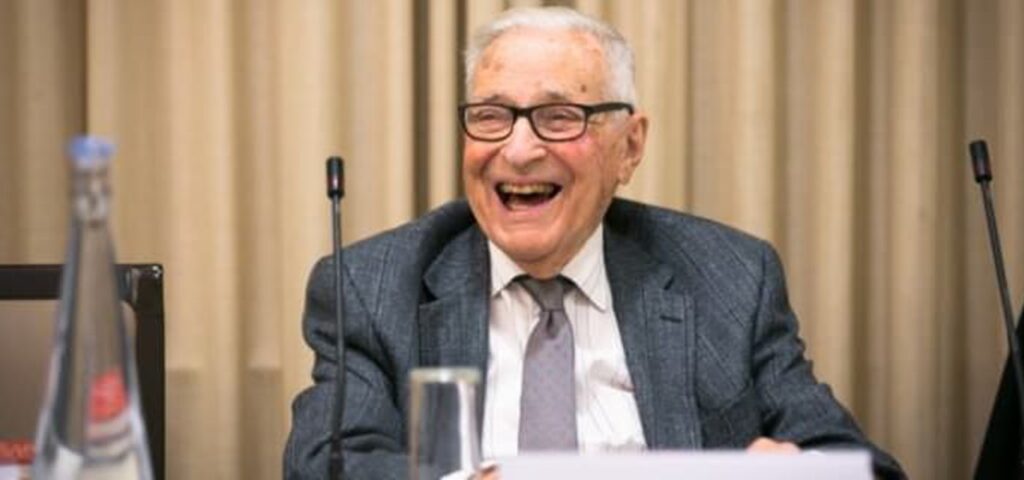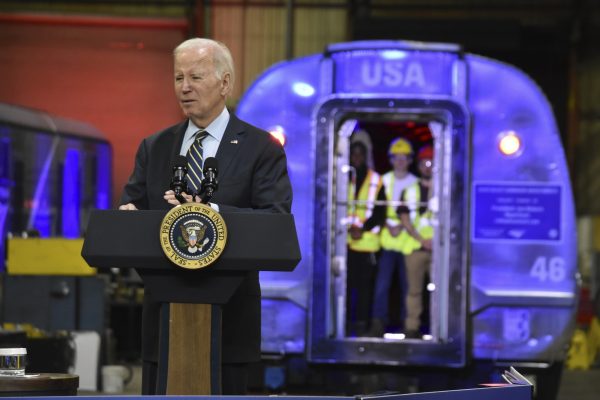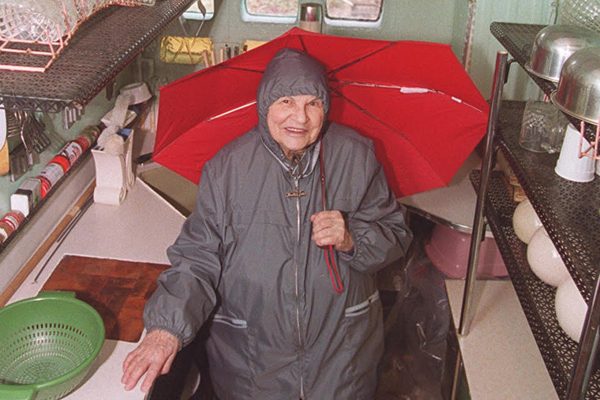Kenneth Arrow, one of the greatest economists of the twentieth century, died last month at the age of ninety-five. He was of the generation of economists whose ideas were formed by the dislocation and turmoil of the Great Depression and World War II, a generation that includes John Nash, Paul Samuelson, Harold Hotelling, and Milton Friedman. Now when so much of economics is straightjacketed by a failure to take account of ethical considerations, Arrow’s work demonstrates that economics is fundamentally a moral science. Whether tackling climate change, international security, healthcare provision, inequality, or racial prejudice, for Ken, economics was first and foremost a means to help improve human well-being. Indeed, his focus on well-being led him to consider the importance of trust and moral codes, as well as government regulations, for market behavior. Homo economicus cannot be out for himself alone.
The point that markets need supports to function is especially relevant at a time when our current government is forcefully cutting back on financial and business regulations. The market may be perfect in an ideal model, but actual markets are not ideal. Instead, information problems, third-party effects, inequality, and a lack of competitiveness beset them. Functioning markets also depend on trust and cooperation, values that inequality can undermine. In his work, Ken revealed himself to be a master of abstract mathematical reasoning, but he never forgot the very concrete lessons of the Great Depression. Markets cannot function on their own.
In a time when economics has been rid of its ethical obligations, we would do well to read Kenneth Arrow.
Ken’s contributions to economic thought cannot be overstated. There is hardly any area in economics that he did not illuminate and profoundly affect. He won the Nobel Prize in 1972 for his work in general equilibrium theory. (He was the youngest person ever to get the Nobel Prize in Economics, fifty-one at the time of his award.) Leon Walras first formulated the idea of a general equilibrium model—in which all prices affect the supply and demand of every good—in 1874. But it took seventy-five more years to prove the existence of this equilibrium. Ken did this, working separately but in communication with Gerard Debreu of Berkeley. This work formalizes the conditions under which perfect competition can exist. At the same time, it thereby clarifies the conditions under which public intervention is necessary to make markets work well. Indeed, it is difficult to think of even a single market that approximates the assumptions of the model.
In addition to his work on economics, Ken made a paradigm-changing contribution to social choice theory. In his doctoral thesis, Ken proved what has become known as Arrow’s impossibility theorem. To understand the theorem, assume that rational people tend to rank their preferences in a transitive manner: if they prefer candidate A to candidate B and prefer candidate B to candidate C, then they prefer candidate A to candidate C. Arrow’s theorem says, however, that when one imposes four very reasonable conditions (such as not letting one person’s preferences determine the outcome for everyone else), it becomes impossible to aggregate rational individual preferences into social preferences in a way that maintains transitivity. In other words, there is no way to ensure that collective preferences (concerning, for example, who among a group of candidates wins an election) can be accurately ascertained by simply adding up individual preferences. In light of this insight, the practice of voting looks much less like an exercise in collective self-determination and more like a game of luck.
For obvious reasons, a great deal of work in democratic theory has been devoted to proving Ken wrong. One way this is often attempted is by eliminating one of the four assumed conditions. For example, the condition known as “universal domain” says that there is no restriction on the preferences that can be considered: all preferences will be ranked. But, in the case of voting, we do restrict the scope of individual preferences—among other things, by having a constitution and by deliberating together. Whatever one eventually decides to make of its implications, though, Arrow’s theorem raises moral questions that need to be grappled with. It is said that this work was so original that even his thesis advisors at Columbia University were unsure as to how to judge it. The committee had to ask some of the more mathematically inclined economists in the department if it was really good. (The committee was assured that it was more than good.)
Ken's ideas are so central to our current understanding of markets that it is hard to remember they actually had to be discovered.
Ken also contributed greatly to our understanding of what is involved in financing a health care system. In a groundbreaking 1963 paper, he showed that because doctors and patients possess unequal amounts of medical knowledge and because there is an absence of price competition (since practicing doctors need to be professionally certified and less qualified people cannot enter the profession by offering lower prices), a market in healthcare would fail to be optimal. He also identified the problems of moral hazard (because insurers and not patients pay for service, doctors and patients have incentives to order extra tests and treatments) and adverse selection (health insurance is more likely to be bought by high risk patients, resulting in a pool that is too costly to insure) in health care. These ideas are so central to our current understanding of the limitations of health care markets that it is hard to remember that they actually had to be discovered. It is unfortunate that the current administration has not paid any attention to this work as it sets to dismantling the Affordable Care Act.
Ken spent the bulk of his career at Stanford where he was a founding member of the Ethics in Society program and remained active on its board. A dedicated teacher, five of his students went on to receive Nobel prizes. He was also my friend for almost thirty years. We were both students at the City College of New York, we both identified with the values of liberal Judaism, and we both saw the crucial intersections of political and moral philosophy with economics. I co-taught a seminar with him on the ethics and economics of inequality last year when he was ninety-four years old. I can attest to the fact that he knew everything—and not just about economics, but also about Kant’s philosophy, Shakespeare, Roman history, even whale mating patterns. Sitting next to him once at a lecture, I recall thinking he was doodling and joked with him about it. It turned out he was solving a problem in a climate change model.
Ken never ceased to believe in the power of knowledge—and government—to advance the common good. In recent years he chaired an Institute of Medicine Committee arguing for subsidizing medicines in developing economies; was a founding trustee for Economists for Peace and Security; and participated in the Intergovernmental Panel on Climate Change. His legacy brings us back to the ways that economics is a moral science, examining not only the conditions but also the limits of market reasoning and brute economic growth. Central to Ken’s thought was the idea that market freedom was valuable as an instrument to human well-being, which it could either promote or, in some circumstances, hinder. Thinking of economics in this way requires broadening the frame we use to evaluate economic policies: at stake in economic decisions are not only questions of efficiency but also other issues, including the manner in which markets shape human development and structure the exercise of power. This is a frame that has particular resonance today. Ken was an intellectual giant and a mensch. (If there was a Nobel Prize for the latter, perhaps he could have gotten one for that as well.)








